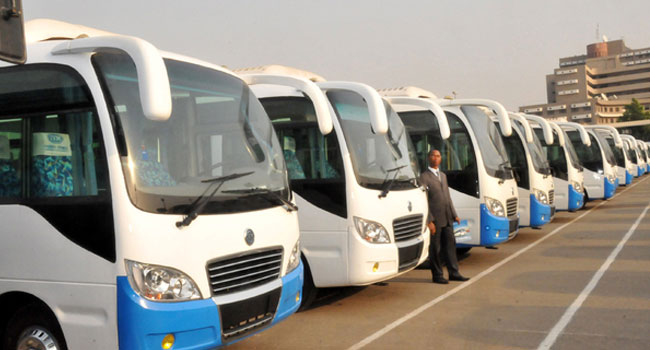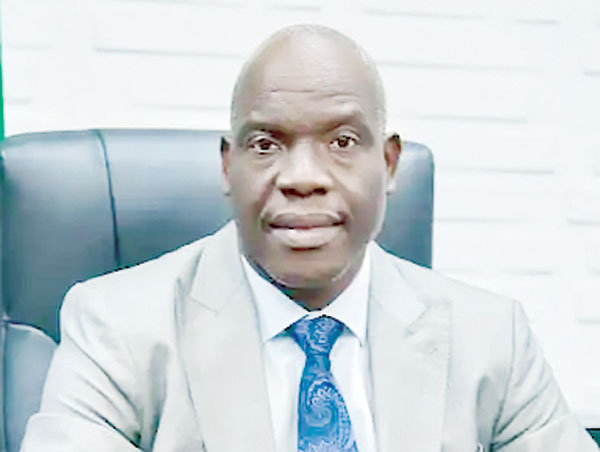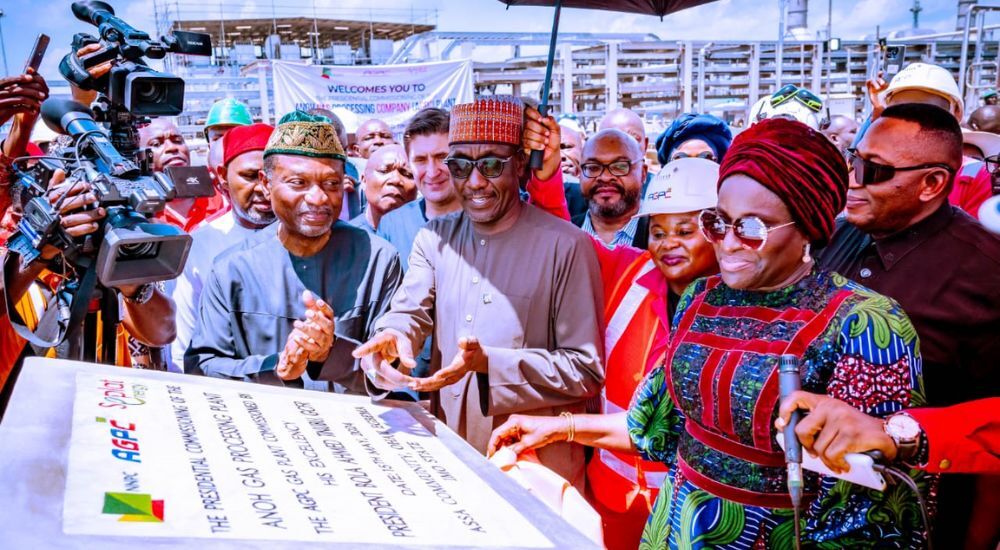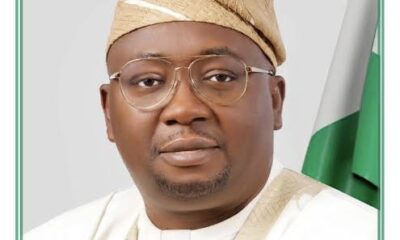Energy
Energy needs: Govt should optimise mini-grids for electricity supply
Among other things, electricity is one thing Nigeria has kept struggling with over time. For a population of over 220million people, a generating capacity of less than 5,000 megawatts is a loud deformity, in all clear expression irreconcilable for a growth yearning economy.
The importance of upscaling the generating capacity of the Country cannot be overemphasised. This is, however, not to say that the profile of other layers of the power architecture chain, to mention, transmission and distribution, are in appreciable conditions. They are themselves in their own faultlines of deficiencies, culminating in an inefficient system of power architecture.
However, for power generation which has remained a major point of discussion, the subject revolving around its instability has become pertinent to fix in the discourse of proferring intervention to the nation’s power sector.
The new government of the President Tinubu led Administration has come at a time when the ebbing state of the economy has steeped so low into the mess of woes of negativities. Revamping the economy has become a song whose echoes cannot faint as many groan over the strains making conditions driving towards the junction of unbearable limit for many. The importance of the need to fix electricity challenges in the Country is a discourse of weighty emergency, particularly as the cost of petroleum products which has for years served as alternative for private generating set, has become largely more unbearable for businesses and household consumption following the discontinuation of subsidy payment.
It is no doubt that to recover the economy from the lowering slope headlong into the mire, the place of power stability and efficiency cannot be taken lightly. It is certainly one of the key subjects that must be given unreserved attention if the narratives of the country’s economic profile must be addressed.
Again the place of power projects remain of significant discourse. Recently, the World Bank disclosed, late June, that it was considering supporting the Nigeria Electrification Project, (NEP) with another $750 million grant. The initial $350 million NEP grant ends in August, 2023. The NEP seeks to bridge the energy access deficit by providing electricity to households, micro, small, and medium scale enterprises (MSMEs), educational and healthcare facilities in unserved and underserved rural communities through the deployment of mini-grids, solar home systems, captive power plants, and productive use appliances. The mini-grid component of the project has a $48 million allocation. The mini-grids which were built under the performance-based grant of NEP were founded by the World Bank.
World Bank Director of Strategy and Operations, Western/Central African Region, Ms Elizabeth Huybens when she inspected, in June, two 60 kilowatt solar-powered mini-grids in Kilankwa I and Kilankwa II communities in Kwali LGA, Federal Capital Territory, explained that access to electricity was a priority goal for the World Bank as it was one of the fastest routes to get people out of poverty.
“These mini-grids really will help Nigeria provide access to electricity to many more people faster than it could have done with just extending the national grid. I’m very impressed that the system of mini-grids in small communities works and that there is also the foresight how one can optimize the use of the electricity generated to expand productive activities in the community like this rice mill we have just seen.
“We believe that access to electricity for all is one of the most important goals to pursue for any country because without electricity, it’s very hard to think about how communities can really live, if you don’t have electricity, kids cannot study at night. Nobody can have a refrigerator.
“We cannot move towards electric vehicles if we don’t have electricity. In fact, you cannot even charge your cell phone without electricity, right. So it’s hard for me to think about modern life without electricity. It’s hard for me to think about reducing poverty without access to electricity. And since the World Bank’s overarching goal is to help countries eradicate poverty, we need to help countries provide access to electricity to their populations,” she said.
For project expansion, she said: “The first Nigeria electrification project that we see at work here, which I believe was $350 million, is coming to a close and so we are preparing a successor project that will be $750 million.
“So we are definitely expanding our support to something that we think is really critical and on which, by the way, Nigeria is leading the world with this sort of small grid development.”
She expressed the hope that the setting up of mini-grids across the Country through the NEP would reduce the reliance of petrol-powered generators used by households and businesses, especially in the face of the recent removal of subsidies on petrol.
On the technical detail of the project, Managing Director of the Rural Electrification Agency (REA), Engr. Ahmad Salihijo Ahmad had explained that about 300 homes and businesses are connected to the 60KW mini-grid.
“This is a performance grant-based project of the World Bank. The project is serving about 300 connections, it has been operational for some time now. So, we are privileged to have come here with the director from the World Bank to see how it is performing. We are working on productive use and ensuring that we have energy-efficient equipment connected to the minigrid,” he had stated.
Following the emergency need for reliable electricity supply, particularly as needs have become more pressing following over 300 per cent hike in fuel pump prices informed by the removal of petrol subsidy, the significance of the demands would require that the Government make concrete room for a decentralised system to optimise the avenue of mini-grids to meet critical energy demands.
It is important to explore mechanisms of funding to expand special provisions in this regard, as intervention to meet the rising needs. This is important for survival of small businesses and for eradication of poverty in line with the demands of revamping the wobbling economy.
Energy
530 CNG buses ready for deployment in Lagos, Oyo, Kwara, FCT, others


The process for nationwide deployment of Compressed Natural Gas (CNG) vehicles has commenced. Not less than 530 buses are to be deployed by the end of the month in six pioneering states.
These are Oyo, Lagos, Kwara, Kogi, Kaduna, Nasarawa, and the Federal Capital Territory (FCT) Abuja.
Programme Director of the Presidential Compressed Natural Gas Initiative (PCNGI) Michael Oluwagbemi stated this yesterday.
It was during the event signaling the commencement of 15-day-long activities ahead of the rollout.
He said the distribution is on a demand-led basis. He added that efforts would be accelerated at the conversion of diesel and petrol-fuel engines across the country.
According to Oluwagbemi, President Tinubu has directed the PCNGI to ensure the conversion of at least 10 per cent of the total number of vehicles in the country in the first year of the rollout of the initiative.
Today, the team will inspect the Jets and Mikano Factory along with representatives of the Ministry of Labour and workers unions.
Southsouth and Southeast stakeholders engagement will be held tomorrow in Port Harcourt, the Rivers State capital.
Affiliate conversion and refuelling at the Femadec Site as well as an inspection tour of the Total Energies support station are planned.
Another six-day inspection tour of the Kojo Factory at the Enugu-Onitsha Site will begin on May 24 to receive the first set of assembled tricycles, buses, cylinders and kits ahead of the official launch.
The Luojia Assembly Plant for CNG tricycles on the Lagos-Ibadan Expressway will be inaugurated on May 30.
“These programmes are a fulfilment of President Bola Ahmed Tinubu’s promise to drive Nigeria’s energy transition in the transportation sector leveraging CNG and enabling economic growth,” Oluwagbemi stated.
He noted the President’s political will to ensure the full utilisation of natural gas which hitherto was being flared.
Energy
Oil block bid rounds: NUPRC assures interested buyers of conducive environment


The Chief Executive of the Nigeria Upstream Petroleum Regulatory Commission (NUPRC), Engr Gbenga Komolafe, has assured prospective investors interested in participating in the country’s oil rounds of a conducive environment to conduct their business.
Komolafe made this assertion at the Miami International Roadshow for the 2024 licensing round, organised by the NUPRC in partnership with the Petroleum Technology Association of Nigeria (PETAN) and Zetse Advisory & Consulting.
Speaking, Komolafe declared that the marketing of oil blocks has garnered staunch backing from the highest echelons of the government.
Engr. Komolafe, who underscored the role of presidential support in attracting investors to the Nation’s oil sector, said the Licensing Round is part of concerted efforts by Nigerian authorities to revitalise the country’s oil and gas industry and foster increased investment.
According to him, the backing signals a concerted effort to provide a conducive environment for both domestic and foreign investors seeking opportunities in Nigeria’s energy market.
The Miami International Roadshow serves as a crucial platform for showcasing Nigeria’s vast potential in the petroleum sector and fostering partnerships with international stakeholders. By collaborating with stakeholders such as PETAN and Zetse Advisory & Consulting, Komolafe further affirms Nigeria’s commitment to fostering a transparent and investor friendly regulatory environment in its pursuit of energy sector excellence.
Energy
Tinubu commissions OB3, ANOH, AHL gas projects


…Reiterates commitment to utilise Gas for economic growth, prosperity
President Bola Ahmed Tinubu on Tuesday virtually commissioned three gas projects in Imo and Delta state.
The projects were executed by NNPC Limited and its partners in Ohaji-Egbema, in Imo State and Kwale, in Delta States, on Wednesday.
The three projects commissioned include the expansion of the AHL Gas Processing Plant, the ANOH Gas Processing Plant and the 23.3km ANOH to Obiafu-Obrikom-Oben (OB3) Custody Transfer Metering Station Gas Pipeline Projects.
Speaking, President Tinubu reiterated the commitment of his administration to utilize Nigeria’s abundant gas resources towards revamping the nation’s industrial growth and kickstarting its economic prosperity.
“It is pleasing that approximately, 500MMscf of gas in aggregate would be supplied to the domestic market from these two Gas Processing Plants, which represents over 25 percent incremental growth in gas supply. In practical terms, this translates into more gas to the Power Sector, Gas-Based Industries, and other critical segments of the economy,” the President added.
The President said from the onset, his administration was clear of its intention to leverage on the virtually unlimited capacity of gas to deepen domestic gas utilisation, increase national power generation capacity, revitalise industries, and create multiple job opportunities for economic growth.
He said aside the Presidential Compressed Natural Gas (CNG) Initiative which is aimed at moving Nigerians away from petrol and diesel as vehicular combustion fuel, significant progress has also been recorded in incentivising gas development through Presidential Executive Orders.
While congratulating the projects partners (NNPC Limited, Sterling Oil Exploration & Energy Production Company Limited (SEEPCO) and Seplat Energy for the successful implementation of the three projects, Tinubu particularly charged the NNPC Limited to, as the national energy company of choice, sustain its relentless efforts and record more successes in the energy sector for the benefit of all Nigerians.
He described the commissioning as a highly significant milestone for Nigeria as it demonstrates his administration’s efforts to accelerate the development of critical gas infrastructure geared at enhancing the supply of energy to boost industrial growth and create employment opportunities.
He said the projects were fully in line with the Federal Government’s Decade of Gas initiative, and his administration’s quest to grow value from the Nation’s abundant gas assets while concurrently eliminating gas flaring and accelerating industrialisation.
“I wish to assure the citizenry that these are just the beginning, as the federal government is stepping up its coordination of other landmark projects and initiatives that will ensure the earliest realisation of gas-fueled prosperity in our country. Consequently, I wish to assure investors in the energy space that this is an investment enabling government and we will not relent in facilitating the ease of doing business,” the President noted.
Earlier in his address, the Minister of State for Petroleum Resources (Gas) Rt. Hon. Ekperikpe Ekpo highlighted the efforts of his ministry to continue to champion the utilisation of gas as a transition fuel as Nigeria moves towards achieving clean energy efficiency and security by 2060.
Ekpo commended the President for his leadership and support towards the success of the three projects.
He said: “Mr. President, the decision to eliminate fuel subsidies at the start of your administration has compelled increased spending in upstream and midstream gas development, and the use of gas as an appropriate, more cost-effective, and cleaner alternative to diesel and gasoline. Furthermore, in keeping with the Paris Climate Change agreement, this measure solidifies the use of gas as our transition fuel as we move the Nation towards achieving green energy sufficiency by 2060.”
The Minister appreciated President Tinubu, saying his “inspiring leadership has been the driving force behind our progress towards a future full of opportunity and promise.”
He described the AHL Gas Processing Plant 2 (GPP – 2) and ANOH Gas Processing Company (AGPC) Plant, which were commissioned, as important facets of the Decade of Gas initiative, and a reflection of the NNPC Ltd. and its Joint Venture partners’ efforts.
“In addition to producing over 160,000 metric tonnes of propane and 100,000 metric tonnes of butane annually, this plant promotes rapid industrialisation and reduces reliance on LPG import,” he said.
In his remarks, the GCEO NNPC, Mr. Mele Kyari described the commissioning as a demonstration of Mr. President’s commitment and support to grow the domestic utilisation of natural gas for power generation, as feedstock for gas-based industries and overall rapid industrialisation of Nigeria on the back of the enormous gas resources in the country.
Kyari assured that as part of its mandate, NNPC Ltd remains committed to maintaining energy security by executing more strategic gas projects for the benefit of Nigeria.
-
Finance4 months ago
Court orders Sen. Victor Umeh to repay N136m bank debt to AMCON
-



 Abuja Update3 months ago
Abuja Update3 months agoUNDP, FG partnership needed to achieve inclusion, equity- Minister
-
capital market2 years ago
Rt.briscoe, FBNH, Others halts negative performance of stock market
-
Abuja Update2 months ago
Banks drive stock market performance with N147bn gain
-



 Health1 month ago
Health1 month agoCapacity training will reduce migration of health workers- NPHCDA
-



 Business3 weeks ago
Business3 weeks agoTingo Group unveils Tingo Electric, Tingo Cola drink at Lagos launch
-
Submission Guidelines4 months ago
CALL FOR SUBMISSIONS: POETRY COLUMN-NND
-
News4 months ago
Oil thieves sponsoring malicious media campaign against Navy – Spokesman






